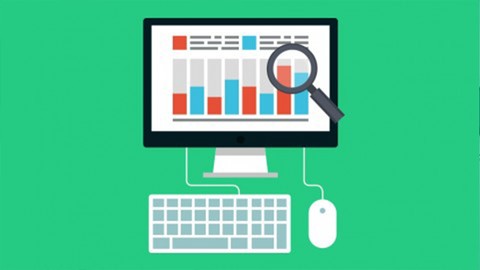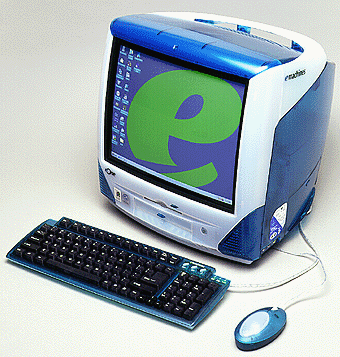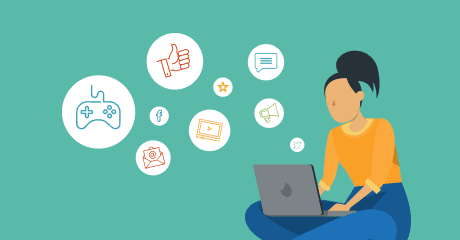Oracle v. Google has been winding its way by way of courts for a decade. You’ve possibly by now heard that the substantial-profile legal scenario could remodel computer software engineering as we know it — but since practically nothing at any time appears to transpire, it’s forgivable if you’ve made a pattern of tuning out the information.
It may possibly be time to tune back again in. The latest iteration of the scenario will be heard by the U.S. Supreme Court docket in the 2020-2021 time, which started this week (just after becoming pushed back again owing to coronavirus worries). The determination of the maximum courtroom in the land simply cannot be overturned and is not likely to be reversed, so as opposed to past conclusions at the district and circuit courtroom level, it would stick for fantastic. And when the scenario is becoming heard in the U.S., the determination would effect the overall international tech industry.
[ Also on InfoWorld: Need to APIs be copyrightable? 7 factors for and 7 towards ]
In scenario you haven’t browse any of the 10 years’ really worth of article content, here’s a refresher. In its match, Oracle claims Google’s use of Java APIs in its Android OS constitutes a copyright violation because Google under no circumstances been given a Java license. As this kind of, Oracle v. Google deals with the problem of irrespective of whether APIs are copyrightable, and if so, irrespective of whether their use in computer software applications constitutes “fair use” under the regulation.
It is a pivotal problem for computer software developers and the overall computer software industry. Re-implementing APIs is computer software engineering’s bread and butter, and if Oracle wins, it will dramatically modify how developers do the job. But what exactly would that modify glimpse like — and what would it imply for your work in just the computer software industry? Here’s a transient preview of the prospective effect.
What copywriting APIs would imply
Most modern computer software improvement most effective methods are constructed about re-implementing APIs. In a earth the place SCOTUS rules in Oracle’s favor, developers would have to modify how they make new computer software. But the adjustments would not quit there. The effect of a pro-Oracle determination would ripple outward throughout the computer software industry.
A lot more organizations will check out to monetize their APIs
Just one of the most instant outcomes of a determination in Oracle’s favor would be enabling organizations to monetize their APIs. They’d possible do so by charging licensing costs for APIs, as quite a few organizations by now do for SaaS computer software.
At to start with glance, licensing may possibly seem to be like an interesting earnings stream, primarily for organizations with enormously well known APIs (e.g., Amazon’s S3 APIs). On the other hand, it’s not likely that quite a few organizations would shell out for API licenses. Though an API will help compatibility, what actually matters is the code you employ at the rear of it to truly get points accomplished. That is your company’s “secret sauce” and the way it differentiates by itself from competitors. In that gentle, having to pay for APIs won’t insert competitive advantage and possible won’t be worthwhile in the lengthy term.
Alternatively, most organizations will possibly tweak their code just adequate to make their APIs “different” under copyright regulation — even even though that code will do in essence the exact detail as prior to. This may possibly conserve computer software organizations revenue, but it would produce compatibility complications in the lengthy operate.
It is also possible that some organizations with well known APIs would opt to make them open up source. There are quite a few advantages to getting your proprietary protocol be the industry normal, even if you really do not make revenue off of it straight. On the other hand, organizations concerned about litigation or long term licensing costs may possibly be wary of applying any API devoid of alteration.
Software program will be significantly less cross-suitable
It is more durable to make unique parts of computer software do the job collectively when they all operate on distinctive proprietary code as an alternative of a one common normal. The exact theory applies outside the house of computer software — it’s why a normal electrical socket is mounted in everyone’s partitions, as an alternative of a unique socket dependent on your electrical firm.
In a earth the place APIs are copyrighted, applications would not participate in collectively approximately as effectively. Switching from a person SaaS supplier to yet another would imply tweaking your code to match its distinctive APIs — a laborous, labor-intensive course of action. This shift would make your skills as a developer significantly less transportable, too. You’d have to find out a new set of APIs every time you switched jobs as an alternative of making use of your current know-how of industry benchmarks.
Competing with proven computer software organizations will get more durable
Copyrighting APIs would switch the organizations that make them into gatekeepers who get to make a decision who makes use of their most beneficial APIs. The tech industry is remarkably competitive, and some organizations may possibly deny many others access just to make their lives tricky. Or, organizations could deny API access to anyone they disagree with, politically or or else, opening up yet another set of difficulties.
In addition, a deficiency of open up source APIs would make incumbents considerably more durable to dislodge. Appropriate now, if a firm isn’t delivering a fantastic support at the rear of its API, an upstart can effortlessly enter the market with a much better support and use the exact API to make that support suitable with current computer software, making certain easy adoption. With API copyright, that goes out the window. Providers would have to make big infrastructure adjustments to adopt the new solution.
A hint of the long term
Most of us in the tech earth are rooting for a Google victory, which would preserve the position quo of computer software improvement. The good news is, points are hunting rather hopeful. In May perhaps, SCOTUS purchased supplemental briefs from Oracle and Google detailing the normal of overview applied to identify truthful use in the unique district courtroom jury demo. (The district courtroom determined in Google’s favor, but that determination was later on overturned on attraction in federal district courtroom.)
The justices’ request could be a indicator that SCOTUS is thinking about a viewpoint place forth in amicus briefs by the Software program Flexibility Law Middle (SFLC), among the many others, which argues that the appellate courtroom overturning a jury ruling on truthful use is unconstitutional under the Seventh Amendment. Next this line of argument would make it possible for SCOTUS to settle the scenario dependent on a comparatively easy procedural concern. The courtroom would stay clear of delving into the specialized complexities of computer software improvement — and would not set any precedent on how APIs should really be interpreted in gentle of copyright regulation.
Despite these hints, even so, we won’t actually know the result until eventually SCOTUS rules on the scenario following yr. It would be wise for all computer software organizations to put together for the likelihood that Oracle will win and APIs will be copyrightable. That doesn’t imply you have to start rewriting your applications’ current APIs now — but it would make feeling to place a plan in position for carrying out so immediately and proficiently if it gets to be essential. In the meantime, all we can do is hold out.
Hannu Valtonen is co-founder and main product officer at Aiven, a cloud knowledge system supplier that operates managed open up-source database, function streaming, cache, search, and graphing remedies for shoppers around the world.
—
New Tech Forum delivers a venue to take a look at and focus on rising organization technological innovation in unprecedented depth and breadth. The choice is subjective, dependent on our select of the technologies we imagine to be critical and of greatest fascination to InfoWorld audience. InfoWorld does not acknowledge marketing collateral for publication and reserves the ideal to edit all contributed material. Mail all inquiries to [email protected].
Copyright © 2020 IDG Communications, Inc.






